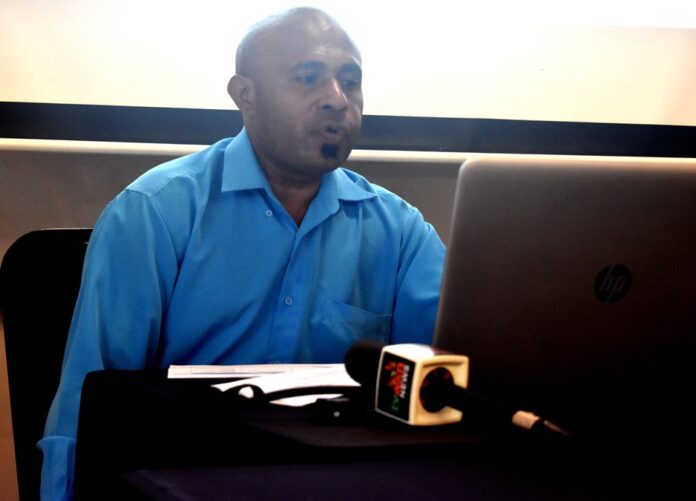
THE PNG Extractive Industries Transparency Initiative (PNGEITI) has presented its latest report highlighting its role in promoting accountability and transparency of revenue received from the PNG mining and oil and gas sector.
The presentation was basically highlighting the PNGEITI’s latest industry report and the processes involved in compiling its reports.
The presentation was an initiative of the ABC Media Development Initiative (MDI) program giving an opportunity for journalists to use the PNGEITI reports as reference for stories on the PNG extractive sector.
Speaking during the workshop on Wednesday, Deputy Head of the PNGEITI National Secretariat Christopher Tabel said that information in terms of data extract from PNGEITI’s report is important because decisions that are being made in Parliament are based upon this information.
“We need to inform people correctly because of the implications that decisions that are being made at the National level whether right or wrong may affect us.
“The more people are being made aware of the EITI’s process, it provides the check and balance and accountability for better informed and decision making,” he said.
The PNGEITI is the country’s National Secretariat established in 2013 as a PNG Government initiative to promote accountability and transparency of revenue received from the PNG mining and oil and gas sector.
PNGEITI is driven by the multi stakeholder group (MSG) which consists of the Government, the Company and the Civil Society. Its implementation benefits all of three sectors in the oil and gas mineral resource value chain.
Some of the benefits or opportunities of PNGEITI include:
- EITI provides a platform for better management of resource revenues.
- PNG Government and resource owners to get maximum benefits from resource exploitation.
- Positive impact on PNG’s efforts to improve transparency and accountability which have positive scores on corruption perception and improve investor confidence.
- Improved reports that fill reporting gaps and identify revenue leakages.
- PNGEITI legislation that ensures reporting entities to fully commit and comply to the EITI reporting standard.
- Open data policy that will ensure information is accessible to the public.
The Secretariat also highlights some of the challenges and how it affects the EITI implementation.
“Constrains for implementing EITI’s report relay on decisions made by every member of the MSG’s stakeholder group whether or not their decision have an impact on the people.
“Every EITI reports are based on a triangulation of report from the three MSG group. If data from these sectors are not provided, it leaves a huge data gap which then will have an impact on the report and on the decisions made upon this reports,” Mr Tabel said.
The presentation was attended by journalist from various media organization in Port Moresby as well as representatives from the ABC Media Development Initiative and the PNGEITI.
